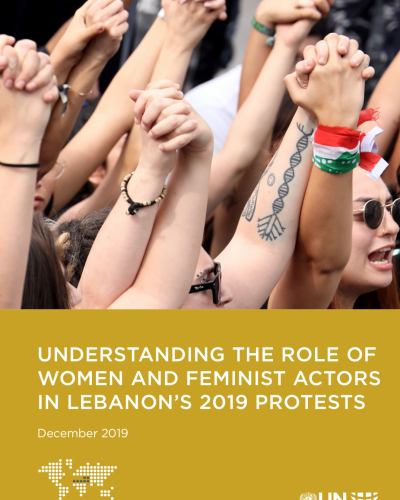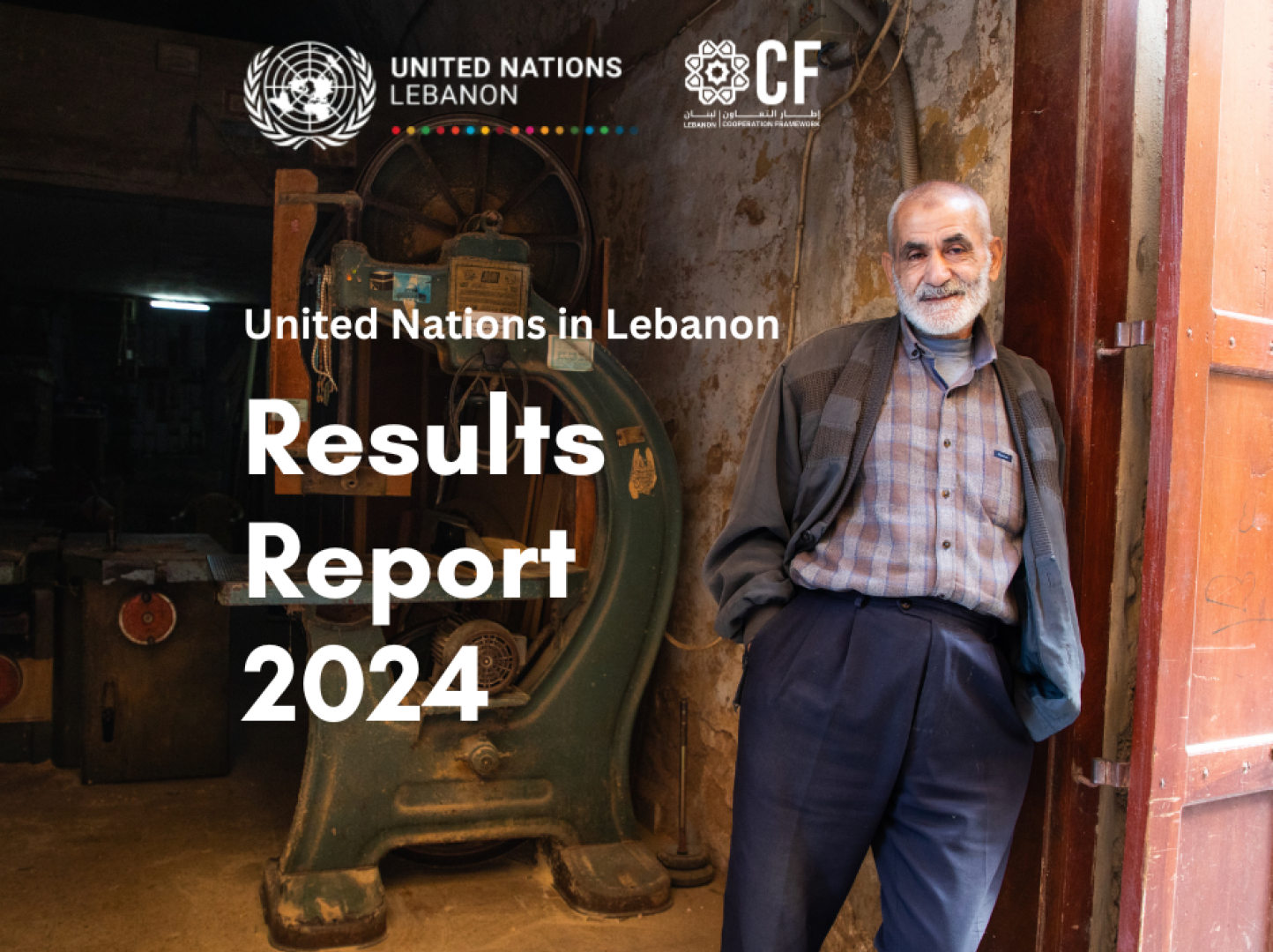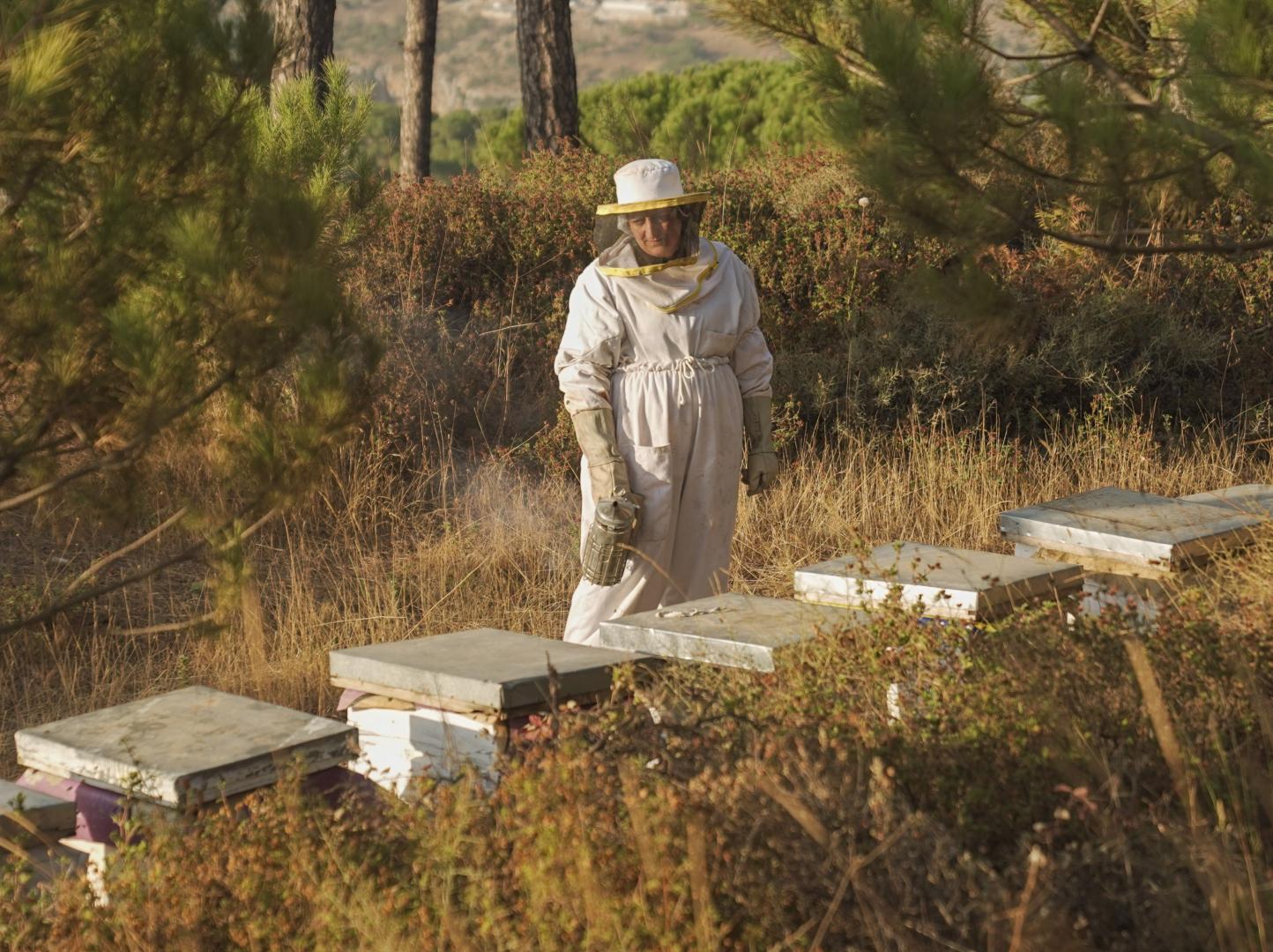Understanding the Role of Women and Feminist Actors in Lebanon’s 2019 Protests

Women have been at the core of Lebanon’s popular protests since they began on October 17, 2019, when women joined the protests in mass numbers and the image of a woman kicking a minister’s armed guard1 went viral, making her a national icon. Catalyzed by sweeping wildfires and a proposed tax on WhatsApp, Lebanon’s nation-wide protests are in response to a range of long-standing public grievances related to governance, accountability, corruption, human rights violations and economic deterioration. Today, women across the country, from diverse backgrounds, continue to drive the movement, leading on political organizing, civic engagement, gender justice advocacy, the de-escalation of violence, mediation, online mobilization and media coverage.
At the time of writing, the protests were 58 days old and the situation was changing rapidly. At the time of writing, they were largely peaceful, though incidents marked by high tensions and violence took place. In response to these, women have used tactics that leverage gender stereotypes to depoliticise and deescalate tensions, playing on social norms which see women as secondary, not as political actors, and as in need of protection. Women have physically inserted themselves into situations deemed as unsafe or at risk of escalation - serving as human buffers between security actors and protesters, and leading marches within and between conflicting communities - to ward off violence and call for peace. In detailing these and other actions this paper did not seek to feed into the argument that women are naturally more peaceful then men. Notions that women are inherently peaceful have been debunked. However, historically women have often been more likely to play peacemaking roles before, during and after conflict for a number of deeply gendered reasons – which include their marginsalisation from power, political parties and militias. This marginalisation means they may have less invested in the maintenance of the status quo and therefore may be less likely to resort to violence for its maintenance.






